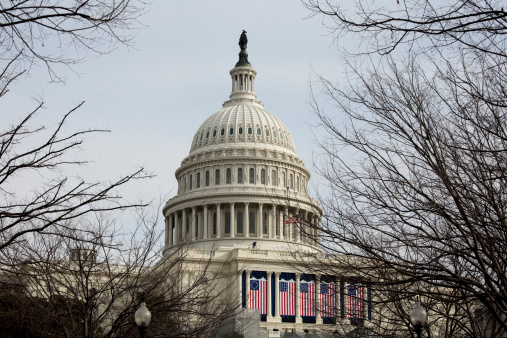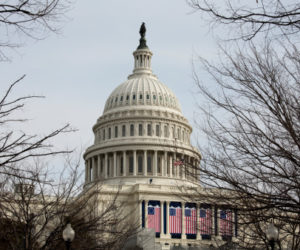Fiduciary Focus: Putting Clients First


President Obama has instructed the Department of Labor, which oversees company-sponsored retirement plans, to develop a new set of rules requiring those who advise plan participants to act as fiduciaries. Anyone acting as a fiduciary is required to put clients’ interests first. The brokerage world normally operates under a different standard known as “suitability,” which merely requires advice to be broadly suitable to clients based on their overall circumstances, but not necessarily be in their best interest. As President Obama later put it while speaking at an AARP sponsored event, “It’s a very simple principle: You want to give financial advice, you’ve got to put your client’s interests first. You can’t have a conflict of interest.
This change has been a long time in coming and is anything but certain. The financial services industry continues to spend heavily lobbying against a mandatory fiduciary standard and they have allies in Congress. The most common rationale offered by opponents of the proposed rules is that requiring those who advise retirement plan participants to adopt a fiduciary standard will drive up costs and make it harder for participants to get advice. This is, of course, absurd on its face. When forced to act as fiduciaries, plan advisors would no longer be able to steer participants to investments with high hidden fees and expenses without disclosing them, as well as disclosing the availability of lower-cost alternatives. It wouldn’t drive up costs, it would instead drive down the profits brokers have been earning from all those hidden fees and commissions. There would still be plenty of advisors willing to work with retirement plan participants under the new rules, there would just be less raping and pillaging going on as part of the process.
This issue has been near and dear to us for many years. Elissa invoked the need for financial planners to adopt a fiduciary standard during her presidential speech to members of the Institute of Certified Financial Planners (ICFP) — a predecessor of the Financial Planning Association — at the group’s annual gathering in 1999. Afterward, finance journalist Bob Clark jokingly shared his surprise and pleasure that Elissa had focused on the fiduciary standard, telling her, “I can’t believe you used the F-word!” Four years later, when Dave was president of the Financial Planning Association (FPA) in 2003 he made it the centerpiece of his speech to 3,000 association members in Philadelphia. W. Scott Simon subsequently quoted from Dave’s speech in his Fiduciary Focus column on the Morningstar Advisor website:
No one describes the vital importance of the work we do in the investment advisory profession and the solemn obligations we owe to our clients better than David Yeske, the 2003 president of the Financial Planning Association:
- Financial planning has the power to transform people’s lives.
- We are dealing, after all, with some of the most potent forces in people’s lives.
- [These] forces will determine whether a couple will be able educate their children, care for aging parents, retire in comfort, travel, and do all else that might mark lives well lived.
- We must also come to terms with the corresponding obligations. For the privilege of exercising our power over the money forces in people’s lives carries with it great responsibility.
- Accepting this responsibility means accepting liability.
- Many have gone so far as to say that financial planners must step up to the plate and accept the role of fiduciary. I certainly like the concept as I understand it: putting your clients’ interest above your own and being ever mindful of the responsibility engendered by their trust.
- I would like to set a higher challenge: to think and act like a fiduciary at all times, whether or not the law says you are.
- We must distinguish ourselves by conducting ourselves always as if we were fiduciaries.
Reporting on the same speech and a subsequent interview, Investment News noted more of Dave’s rationale for calling on all financial planners to act like fiduciaries, whatever the law might require:
David Yeske, president of the Financial Planning Association, urged attendees at the Denver- and Atlanta-based group’s annual FPA conference last week in Philadelphia to “think and act like a fiduciary at all times, whether or not the law says you are.”
The broad challenge laid out by Mr. Yeske was controversial because it was directed to everyone who holds themselves out as financial planners.
“People argue about fiduciary [status], whether or not you should be a fiduciary, whether or not you’re required to be a fiduciary at all times in dealing with your clients,” Mr. Yeske tells InvestmentNews.
“I wanted to cut through all that and say, `We should not even care about the legal status. We should not even be nitpicking the legal technicalities. We should just accept the fact that we need to put our clients’ interests first at all times.”‘
In response to the concern about added risks, Mr. Yeske says: “We work with powerful forces in people lives, and liability is going to go along with that. Live with it.”
During Dave’s years on the FPA board, the association also battled the SEC over the so-called “Merrill Lynch Rule,” under which broker-dealers were allowed to offer fee-based accounts without adopting a fiduciary standard, something clearly required by the Investment Advisor Act of 1940. By not requiring broker-dealers to adopt a fiduciary standard, the SEC left them free to engage in undisclosed self-dealing that was not in their customer’s best interests. FPA ultimately sued the SEC and won. On the eve of the SEC’s deadline to appeal that decision, Dave appeared on CNBC’s Closing Bell with Maria Bartiromo to discuss the matter.
In the end, the SEC decided not to appeal the DC Court’s ruling and the Merrill Lynch Rule ceased to exist. As did Merrill Lynch itself in January of 2009 when it was taken over by Bank of America after suffering $52 billion of losses as a consequence of the sub-prime meltdown that Merrill had done so much to create. Transparency and disclosure were the only thing that might have prevented the Great Recession and all the regulatory and legislative forces during the preceding decade had been moving in the opposite direction.
Let’s hope that the big money being thrown around in Washington right now doesn’t sway Congress to oppose this latest blow for transparency and consumer protection. And, believing that you sometimes have to fight fire with fire, Dave is again serving on the board of FPA’s Political Action Committee (PAC) and he urges any financial planning colleagues who are reading this and who are members of FPA (only members can contribute) to consider making a PAC contribution. And if you’re not an FPA member but believe in its mission and the importance of having real financial planners represented in Washington, please consider joining! The PAC is a critical piece of our advocacy efforts, helping us to gain access to key legislators and tell our version of the financial planning and consumer protection story.
